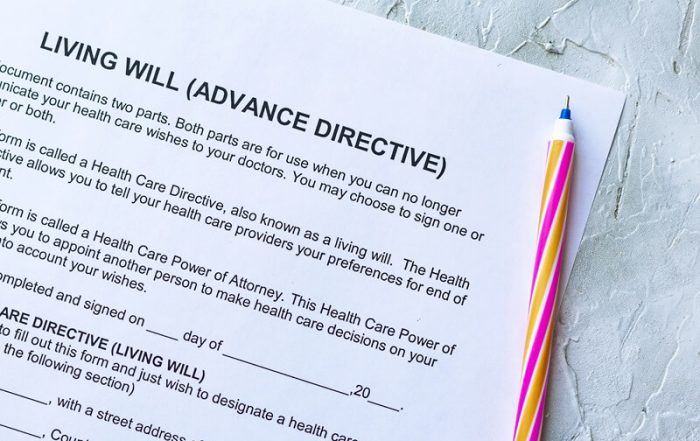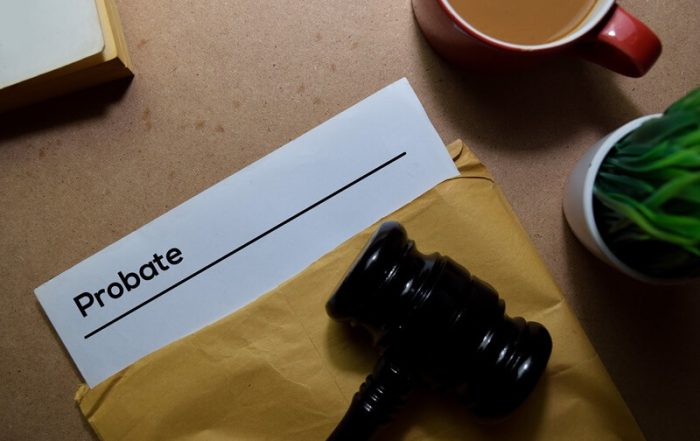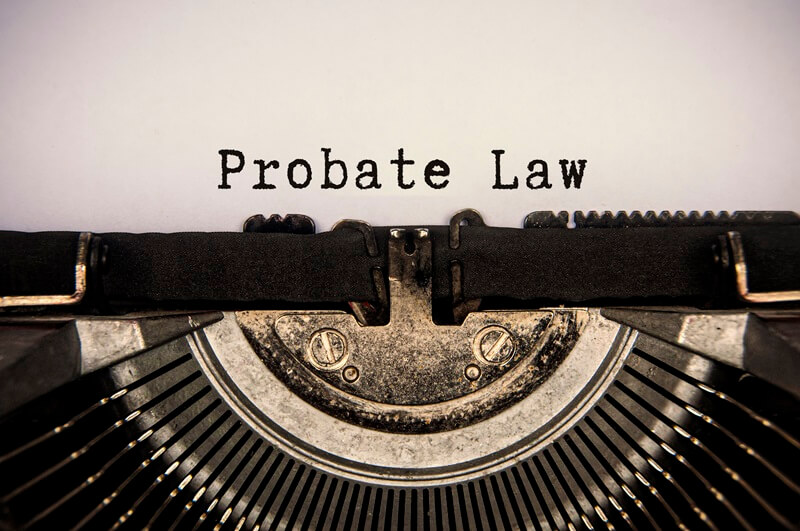Executor’s Duties In Los Angeles Probate Administration
Executor’s Duties In Los Angeles Probate Administration
Losing a loved one is a challenging time, and handling the Los Angeles probate administration requires time and effort. An executor helps ease the task by taking on the administrative work. They settle the decedent’s estate, address debts and taxes, manage assets, and distribute them according to the will or state law.
This comprehensive guide delves into an executor’s essential duties and responsibilities in probate. It highlights their legal obligations and potential liabilities involved. Explore their role and the importance of seeking professional guidance when needed.

Los Angeles Probate Administration Overview
Probate administration is the court-supervised process of managing and distributing a decedent’s estate. The executor is responsible for filing paperwork, cataloging assets, and distributing property to beneficiaries. They strictly comply with legal requirements, maintaining order and precision.
Personal representatives enforce legal standards and procedures. Diligently fulfilling their responsibilities leads to a smooth probate administration. It guarantees timely and lawful asset distribution, protects estate value, and fulfills the decedent’s wishes.
Duties & Responsibilities Of An Executor
An executor takes on critical tasks to efficiently manage the estate and ensure compliance with legal requirements. Neglecting these duties can cause delays and complications. Personal representatives must promptly avoid these issues and provide a smooth probate process.
Filing The Will & Initiating Probate
The executor’s first duty is to file the will with the probate court and officially start the process. The step involves submitting the necessary documents and petitioning the court to recognize the will and appoint the executor as a personal representative.
Notifying Interested Parties
The personal representative must notify all beneficiaries, heirs, and creditors about the probate proceedings. This step informs everyone with a potential interest in the estate and allows them to participate or make claims. Clear communication prevents future disputes.
Inventorying & Managing Assets
An essential part of a personal representative’s role involves identifying, listing, and safeguarding the decedent’s assets. They manage real estate, bank accounts, personal belongings, and investments. They control these assets to preserve their value and direct accurate distribution.
Paying Debts & Taxes
The personal representative settles all outstanding debts and taxes owed by the estate. They evaluate the estate’s liabilities and make timely payments. Further, they also file necessary tax returns to comply with legal requirements and accurately account for all financial obligations.
Distributing Assets
After settling debts and taxes, the personal representative distributes the remaining estate to the beneficiaries according to the instructions in the will. This step demands strict adherence to the will’s instructions and probate court legal requirements.
Closing The Estate
Finally, the personal representative completes all necessary paperwork and legal steps to close the probate process officially. It includes filing a final accounting with the court and obtaining a closing statement to discharge their duties.
In addition to these responsibilities, executors must meet specific legal requirements to manage the estate effectively. Compliance with these requirements leads to a smooth probate process. This adherence accurately fulfills the executor’s duties.
Legal Compliance In Los Angeles Probate Administration
Personal representatives have legal obligations. They must adhere to specific requirements to manage the estate effectively. Further, they must uphold legal standards and ensure a correct probate process. Key obligations include:
Managing The Estate
A personal representative must manage the estate responsibly and prioritize the beneficiaries’ interests in every decision. They must handle the estate reasonably and according to the will. Effective management requires clear communication with beneficiaries and diligent oversight of all estate matters.
Protecting Beneficiary Interests
An executor has a fiduciary duty to act in the interests of the beneficiaries. It means protecting the estate’s assets from creditors and other potential claims. The executor also ensures the proper distribution of assets and maintains open communication with beneficiaries.
Submitting Documents
They must promptly file the will and necessary probate documents with the court. This step initiates the probate process and ensures it progresses smoothly. Timely submission is required to meet all legal requirements.
Tax Compliance
Personal representatives must adhere to state and federal tax laws by filing estate and income tax returns. They must handle all tax matters promptly and accurately to prevent legal issues and penalties. Timely and correct payments protect the estate from future disputes.
Court Orders & Deadlines
Executors must follow all probate court orders and meet deadlines, and if they fail to comply, it results in legal complications and delays. Adhering to these requirements leads to a smooth administration and avoids unnecessary disputes or additional costs.
Record Keeping
One of their most important tasks is keeping detailed records of all transactions and decisions. Accurate documentation is essential for transparency and accountability and helps protect against potential disputes or legal challenges.
Adhering to these legal obligations ensures the probate process runs smoothly and effectively. Compliance not only upholds legal standards but also protects the interests of all parties involved. Executors face potential liabilities, making their accountability crucial.
Potential Liabilities & Legal Protection
Executors face liability for mismanagement or failure to fulfill their duties, which can lead to lawsuits and financial penalties. They must uphold their legal and fiduciary duties with diligence, honesty, and transparency. Violations of these responsibilities will result in significant legal consequences.
Breach Of Duty
Beneficiaries or other interested parties file lawsuits if executors fail to fulfill their duties or mismanage the estate. Legal action imposes financial penalties or personal liability. Executors must understand and meet their fiduciary obligations to avoid these consequences.
Protecting Executor’s Interests
Executors who act in good faith avoid liability for the estate’s debts or losses. However, they should obtain liability insurance to cover potential legal claims. Maintaining accurate records and following the legal requirements reduce personal liability and mitigate risks.
These liabilities emphasize the need to appoint a responsible executor. Failing to do so can result in severe complications. Properly designating a personal representative prevents these issues and supports effective estate management.
Consequences Of Not Appointing An Executor
Appointing a personal representative in a probate administration is essential for a smooth and efficient settlement. Without this designated individual, several negative consequences can arise. It could lead to delays and disputes among beneficiaries.
State Laws Decide
Without a designated executor, state laws dictate how to distribute assets and might contradict the decedent’s wishes. It can lead to unforeseen beneficiaries inheriting portions of the estate or unequal distributions among the intended heirs.
Family Disputes
Disagreements among family members over the estate’s management can lead to arguments and tensions. These disputes delay the probate process, damage family relationships, and escalate stress during a difficult period.
Delayed Probate Process
Probate can experience significant delays without a designated representative. Postponing asset valuation, debt payment, and tax filings extend the settlement period and heighten the risk of complications. These delays can also increase the estate’s legal and administrative costs.
Mismanagement Of Assets
Executors may mishandle or squander estate assets. Neglect or poor management can lead to the depreciation of vulnerable assets. These include real estate and investments in which mismanagement can cause significant financial losses for beneficiaries.
Higher Costs
Without a personal representative, probate can extend, and legal issues can become complex, increasing legal and court fees. It strains the estate’s resources and raises additional administrative costs, reducing its value.
Unclear Responsibilities
Neglecting essential tasks like paying debts and distributing assets can lead to poor estate management and potential conflicts. Without proper oversight, executors may not meet these responsibilities. It can lead to poor estate management and potential disputes among beneficiaries.
The absence of a personal representative creates significant challenges for the estate and its beneficiaries. Appointing a trustworthy individual manages the estate according to the decedent’s wishes. Consulting an experienced Los Angeles probate administration lawyer can lead to a smooth process and proper appointment of an executor.
Los Angeles Probate Attorneys Provides Assistance
 At Los Angeles Probate Attorneys, we help identify and appoint a suitable executor. We comply with the state’s regulations and provide ongoing support. Additionally, we guide the personal representative in performing their duties effectively.
At Los Angeles Probate Attorneys, we help identify and appoint a suitable executor. We comply with the state’s regulations and provide ongoing support. Additionally, we guide the personal representative in performing their duties effectively.
Understanding Your Needs
Our team evaluates each client’s unique circumstances, including the estate’s size, complexity, family dynamics, and desired outcomes. This evaluation helps us tailor recommendations to meet the client’s specific needs.
Identifying Potential Candidates
We evaluate potential candidates for executor, including family members, trusted friends, or professional fiduciaries. We also assess each candidate’s qualifications and suitability for the estate’s needs. Lastly, we ensure the selected executor demonstrates the necessary dependability to manage the process precisely.
Legal & Procedural Guidance
We can simplify the legalities of appointing an executor. We handle all paperwork, court filings, and communications to ensure compliance with laws and regulations. Additionally, we can assist so the process runs smoothly and efficiently.
Peace Of Mind
With our solid support, you gain peace of mind since we possess the skills and experience to manage the process professionally. We fully grasp a personal representative’s substantial responsibilities, so we help select the right one who is prepared to manage the estate.
Further, we assess each client’s needs, identify candidates, and correctly manage all legal procedures. Our team actively protects your interests and ensures a seamless transition.
Summary
A skilled executor drives a smooth probate administration by managing legal, financial, and administrative tasks. They must show trustworthiness in handling estate matters. A probate administration attorney in California prevents complications and delays by ensuring the appointment of a qualified executor.
Choosing the right executor is essential for a successful probate process. Their roles, responsibilities, and liabilities highlight the need for a qualified individual. At Los Angeles Probate Attorneys, we know the intricacies of the law and can help you make informed decisions.








